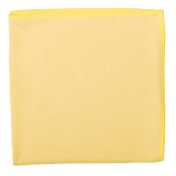The seventh type of floor that we will take a closer look at in our flooring series is tiles. As in the other articles, we will take a closer look at the material, production and properties. We will then look at cleaning and care so that the floor lasts a long time. We will conclude the flooring series with our recommendation.
What exactly are tiles?
Tiles are an essential part of homes, as they are versatile and therefore suitable for every area. Ceramics have been used as flooring for many years. In addition to ceramic tiles, there are also tiles made of earthenware, stoneware, porcelain stoneware and natural stone. These different materials have different properties and are therefore not suitable for all areas . When choosing tiles, you must consider which material is best for the respective room.
How tiles are made
The raw material clay is required to make tiles. In order to obtain the different properties, different types of clay are mixed. For this purpose, quartz, kaolin or feldspar are added to obtain individual properties. The composition of these different materials is important for firing . In the next step, the material must be shaped. A distinction is made between two different processes, the extrusion process and dry pressing . In extremely rare cases, tiles are still shaped by hand. In the extrusion process, the clay mass is pressed into an endless strand and cut to the correct size immediately before it is fired. In dry pressing, the powder is pressed into the correct shape using high pressure and then fired. The last step is firing. Depending on the composition, the raw materials are fired between 1000°C and 1200°C . The firing temperature is crucial for the properties of the tiles, e.g. the higher the firing temperature, the greater the strength.
Properties of the different types of tiles
As already mentioned, tiles come in many different designs and made from different materials. Stoneware tiles are more porous and less durable . This may sound like a disadvantage at first, but these properties are ideal for cutting to size and are therefore popular as wall tiles. Furthermore, stoneware is not frost-proof and is therefore only suitable for indoor use. Stoneware, on the other hand, can be used both as flooring and as wall cladding . As stoneware is fired at higher temperatures, the surface is much denser and more robust . Porcelain stoneware is also fired at high temperatures and is therefore also very durable . Furthermore, porcelain stoneware tiles have low water absorption , which makes them ideal for outdoor use. They are also frost-proof. Natural stone tiles, on the other hand, are made from different types of stone, so the properties vary depending on the type of stone chosen. The long-lasting natural stones are always unique, frost-proof and durable.
Cleaning and care of tiles
To ensure that the floor stays beautiful for a long time, a few points must be observed when cleaning and maintaining it. After the floor has been freshly laid, an initial or basic cleaning is usually carried out. The cement residue and remaining dirt are removed using special cleaners . It must be noted that some stones are sensitive to acid. Maintenance cleaning is not particularly difficult. Smooth and glazed tiles can simply be wiped with water and a little dishwashing liquid or glass cleaner. Cleaning is a little more complicated for floors that are used frequently. Here, lye-based cleaners are required that do not damage the surfaces and joints.
Mundizio therefore recommends: Forex intensive cleaner for stone tiles by Dr. Schnell
For optimal cleaning, we therefore recommend the Forex intensive cleaner for stone tiles from Dr. Schnell. The cleaner for stone tiles is used for deep pore maintenance and basic cleaning of porcelain stoneware and ceramic coverings. Its versatility will make your floor shine again. It can be used on all waterproof and alkali-resistant floors and can be used with any cleaning method. With a short exposure time, you can achieve optimal cleaning results , despite heavy soiling. Depending on the application, you should pay attention to the mixing ratios in the product data sheet in order to achieve inexpensive but also effective cleaning .
All blog posts about the flooring series at a glance
- cork
- Carpet
- PVC
- Linoleum
- parquet
- laminate
- natural stone
- tiles



